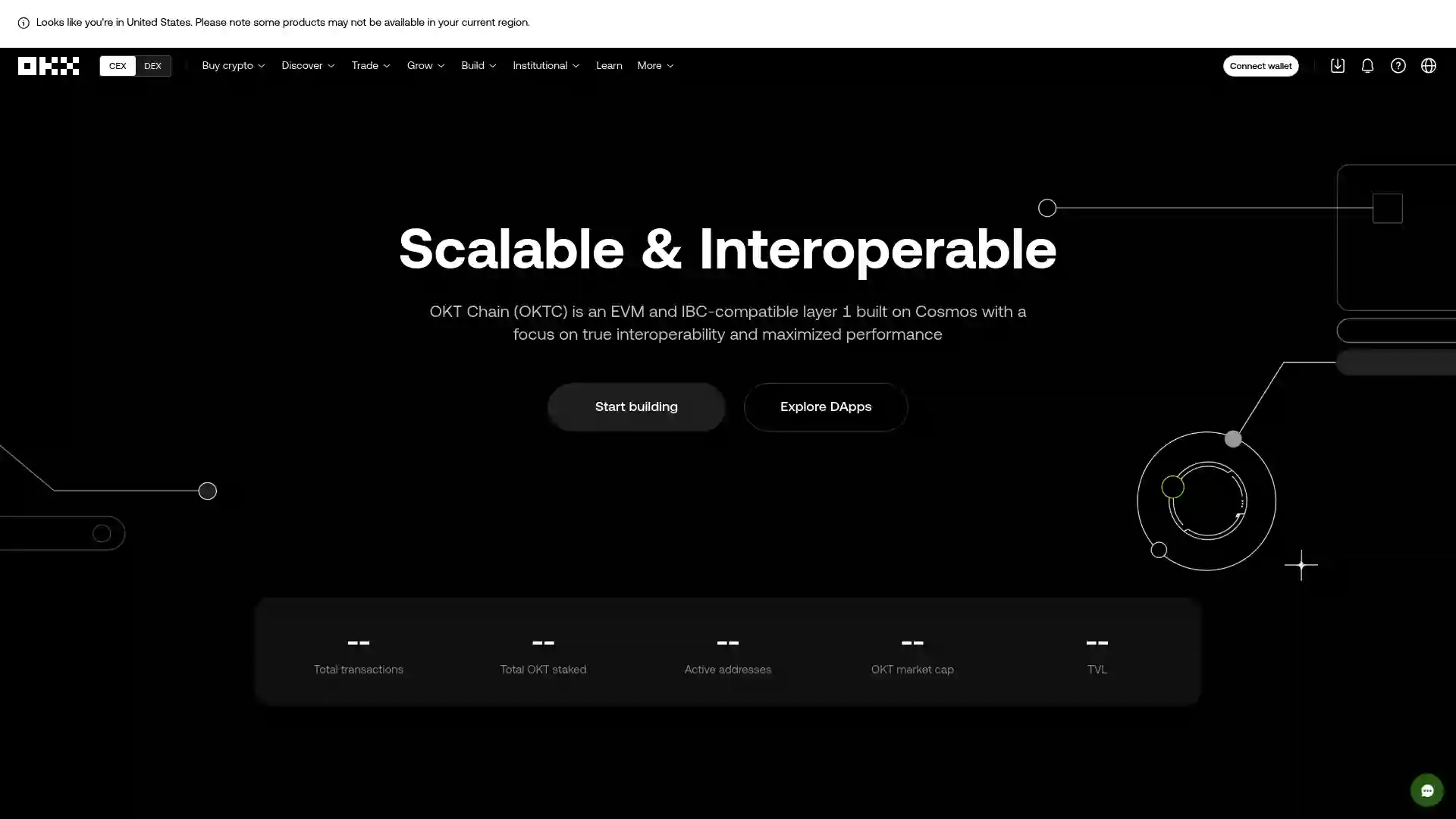OKT Chain (OKT)
OKExChain is an open-source, public blockchain technology developed by the cryptocurrency exchange platform OKEx. This blockchain is specifically designed to facilitate the construction of blockchain-based trading applications. OKExChain aims to establish a secure and efficient decentralized-finance (DeFi) architecture. It provides the necessary framework for creating decentralized exchanges (DEX) that emphasize community-driven operations, transparency in trading rules, and user autonomy in asset management.
Features of OKExChain
OKExChain incorporates several key features that make it a robust platform for decentralized applications and exchanges:
Decentralized architecture

| Ticker | OKT |
| Category | |
| Website | https://www.okx.com/okc |
| @OKCNetwork | |
| Telegram | OKCNetwork |
| https://www.reddit.com/r/OKEx/ |
OKExChain is built on a decentralized architecture, which is pivotal for maintaining the security and integrity of the blockchain. This architecture ensures that no single entity has control over the network, aligning with the core principles of blockchain technology. Decentralization enhances trust among users, as operations are conducted transparently and securely.
Community-driven operations
One of the standout features of OKExChain is its emphasis on community involvement. The platform is designed to operate in a manner that involves the community in decision-making processes. This community-centric approach allows for more democratic governance and ensures that the platform evolves in line with the collective interests of its users.
Transparent trading rules
Transparency is at the heart of OKExChain's operational ethos. The blockchain employs transparent trading rules, which are essential for fostering trust and reliability among users. By making trading rules clear and accessible, OKExChain reduces the risk of manipulation and promotes fair trading practices.
User-controlled assets
OKExChain empowers users by allowing them to have complete control over their assets. This feature is crucial in the context of decentralized exchanges, where users seek to manage their cryptocurrencies without the intervention of intermediaries. By ensuring user autonomy, OKExChain enhances security and provides peace of mind to its users.
Building decentralized applications on OKExChain
OKExChain provides a comprehensive environment for developers to create decentralized applications (dApps). The blockchain supports a range of functionalities that cater to the needs of developers looking to build innovative solutions in the DeFi space.
Smart contract functionality
The blockchain supports smart contract functionality, which is essential for automating transactions and processes within decentralized applications. Smart contracts on OKExChain are designed to be efficient and secure, offering developers a reliable framework to build upon.
Interoperability with other blockchains
OKExChain is engineered to be interoperable with other blockchain networks, enhancing its versatility and usability. This interoperability allows for seamless integration with various blockchain ecosystems, facilitating the exchange of assets and information across multiple platforms.
Developer support and resources
OKExChain offers extensive support and resources for developers. The platform provides comprehensive documentation, tutorials, and tools to assist developers in building and deploying their applications. This support system is designed to encourage innovation and streamline the development process.
Use cases of OKExChain
OKExChain's robust infrastructure and features make it suitable for a variety of use cases, particularly in the realm of decentralized finance.
Decentralized exchanges (DEX)
One of the primary applications of OKExChain is the creation of decentralized exchanges. These DEXs operate without a central authority, allowing users to trade cryptocurrencies directly with one another. OKExChain's transparent trading rules and user-controlled assets make it an ideal platform for developing secure and efficient DEXs.
Decentralized finance (DeFi) platforms
Beyond exchanges, OKExChain is well-suited for building broader DeFi platforms. These platforms can offer a range of financial services, such as lending, borrowing, and asset management, all powered by smart contracts and decentralized protocols.
Token issuance and management
OKExChain facilitates the issuance and management of tokens, enabling projects to launch their own cryptocurrencies. This capability is crucial for startups and enterprises looking to leverage blockchain technology for fundraising and community engagement.
